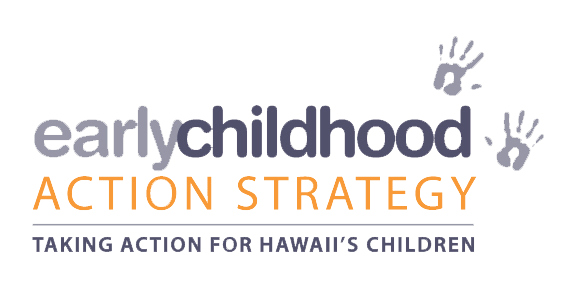
Certain systems-level efforts require collaborations across teams and content areas.
The IECBH Plan proposes to integrate child and family mental health and trauma-informed care into our health and early care and learning systems throughout Hawaiʻi.
The Pāhoa Promise Partnership, on Hawaii Island, and the Ka `Upena o Waimānalo partnership, on Oahu, are community-based efforts to develop continuums of support for young keiki and their `ohana.
In 2023, ECAS network partners came together to draft a broad vision of relief and recovery for young children and families in Maui County. Many of the resulting efforts have involved the WMECC, a network of partners, fostering collaboration with local organizations and providers.
The EC Funders’ Hui is comprised of philanthropic funders who support work in early childhood health, safety, and learning.
CCP is the practice of working closely with affected community members about priorities that get elevated, funded and worked on at different levels. In practice, it means placing affected communities at the center of voice and decision-making.
Commit to Keiki (CTK) is a statewide, non-partisan, public-private collaborative to ensure a brighter start for Hawai‘i’s youngest keiki. Led by a diverse Steering Committee, Commit to Keiki’s mission is to increase Hawai‘i’s investments in its youngest keiki by collaborating with elected officials and serving as a trusted partner and reliable resource for information on issues related to early childhood.
Ensuring that young children with disabilities and their families are provided services by knowledgeable, skilled, competent, and highly qualified personnel, and that sufficient numbers of these personnel are available in the state to meet needs.
Network partners have been implementing key initiatives to embed culturally appropriate physical activity and nutrition best practices into Hawai‘i’s ECE system and settings.
Hawai‘i’s FARMWISE Coalition brings together policy leaders and food systems and early care and learning stakeholders to expand access to nutritious, locally sourced foods for young keiki.
With the knowledge and experience you have provided from the beginning of this journey until now, we are working to carefully weave together the important stories and patterns that teach us how our systems currently works.
Support and Scale Promising Practices
ECAS teams serve as a laboratory to develop, incubate and assess innovative practices and, where promising, help to transition them to more permanent organizational homes. Some efforts had their genesis within ECAS teams and have since transitioned to other organizations, where they may become part of ongoing intervention practices.
ECAS Team 2 partners continue to focus on the Aloha at Home initiative to support family strengthening with culturally appropriate resources.
A workgroup of ECAS Team 4, in partnership with Aloha United Way AUW211, has developed an online resource guide for Hawai‘i’s youngest keiki and their families.
Peer Support for Perinatal Substance Use Disorder (PSUD)
The Makua Allies peer-support program focuses on keeping new mothers who are healing from substance use together with their infants.
Hawaiʻi LATCH (Lactation Access Transforming Communities)
Improved access to lactation consultation reduces inequities in health care access and improves outcomes for children and families.
The Ka ʻUpena Shared Services pilot project was created by ECAS partners and funders in response to the COVID-19 pandemic and ongoing challenges faced by family child care providers and small centers in the state of Hawaiʻi.
ECAS and partners continue to support and advise Windward Community College (WCC) in their ongoing effort to create an educational pathway that focuses on the business-specific knowledge and skills needed by potential family child care providers to start and sustain child care businesses and careers.
















